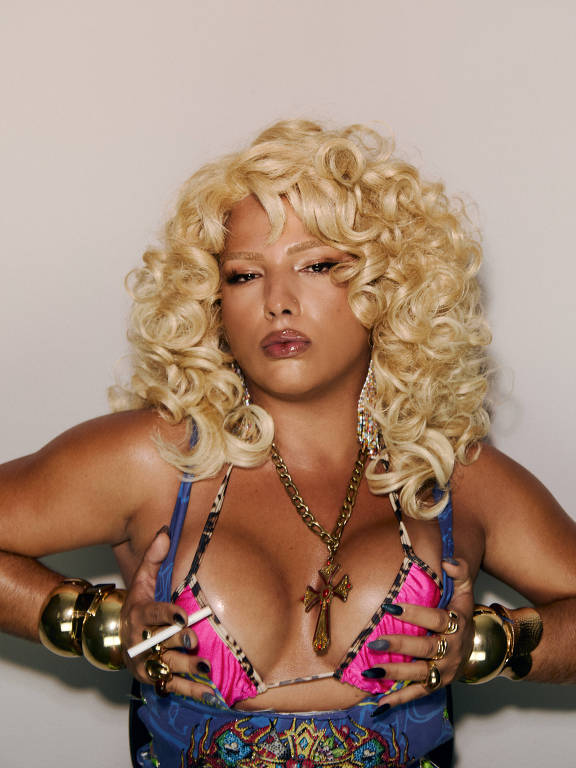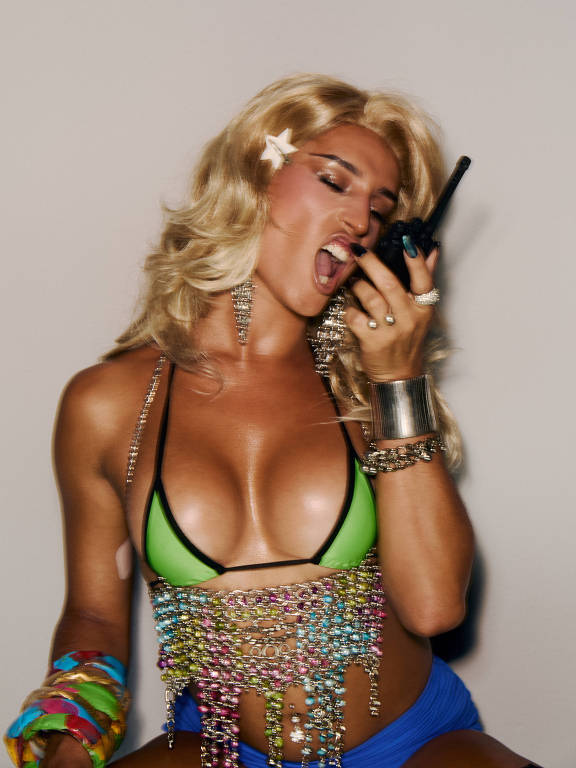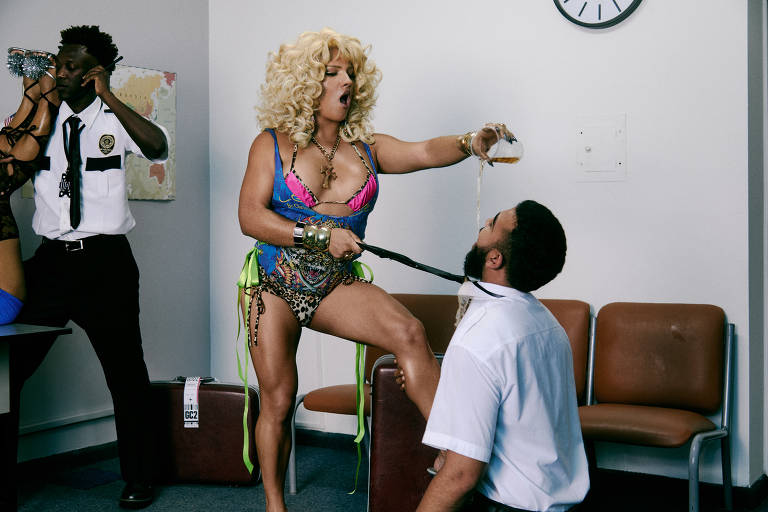Understand how the duo Irmãs de Pau sabotages music and opens up routes for trans bodies

"I saw funk as a space for freedom. I speak of my sexual experience as a transvestite. I speak of a body that is using the penis like a woman with a penis — because it doesn't only belong to men." This is how Isma Almeida, who forms the duo Irmãs de Pau with Vita Pereira, explains the label they invented to define themselves — researchers of the sound and visual aesthetics of Brazilian whoredom.
Catapulted to stardom after a partnership with Pabllo Vittar , the duo has taken over the queer scene in São Paulo with their combination of electronic music , dancehall and hip hop with their explicit and shameless lyrics, based on their experience on the outskirts of the city's west side.
Friends for a decade, the two met at a high school student occupation , but their first compositions were born during the pandemic. That's when they managed to get crowdfunding for their debut album, "Dotadas", from 2021, already featuring Jup do Bairro , a renowned figure in the scene.
One of the first DJs to bet on the duo's sound was Mu540, in "Travequeiro". "They are multi-artists, who know what they want, from the moodboard to the costumes and set. They bring an absurd grandeur to the funk artist and to the Brazilian artist", says the musician.
The turning point came the following year with the single "Shambaralai" and the participation in the album "After", byPabllo Vittar , on the track "Derretida". There, a catchphrase was born that spread across TikTok — "elas têm pau, e a Pabllo também tem pau".
Since then, the duo has become a frequent presence at various festivals and, this Saturday, on the eve of the LGBT+ Pride Parade , they will perform at the Kat Klub nightclub, in downtown São Paulo.
This year alone, they have already performed at Hopi Pride , one of the main music events aimed at the LGBTQIA+ public, in the interior of São Paulo, were the soundtrack for the Misci fashion show, by designer Airon Martin, inspired by the novel "Tieta do Agreste" , by Jorge Amado, and were also part of the pagode project "Numanice", by Ludmilla .
"We don't have big brands, public notices or institutions supporting us. We are businesswomen, producers and fundraisers ourselves. We save money for the project", says Vita Pereira, highlighting the creation of the album "Gambiarra Chic".
The second part of the work, released at the end of last month, is the duo's most sophisticated production to date. In ten tracks, the sound ranges from rap to drill, passing through club jersey, mandelão and even reggaeton. It features the signature of friends such as DJ Dayeh, Brunoso, Larinhx, Cyberkills and others.

"Boy Boy", for example, reinterprets "Boi da Cara Preta" to make it clear to a crush that the relationship is casual. In "Posturadas", the duo makes it clear that they "don't gossip with ugly girls, don't waste time with men and enjoy a new hit in every studio session".
"We only sing what we compose. It's a premise to be honest with our lives and what touches us," says Isma Almeida. "Representation through our work and our lives is a consequence. I want to be real and others will see themselves in me. I don't want to be pressured for having turned the tables and wanting me to represent everyone. Not all black trans girls want to be funk singers like me," she says.

"I'm a son of a bitch/ I don't need a hunk/ I worked myself/ I paid for my Lacoste bag." The lyrics of "Queimando Ice", a partnership with rapper Duquesa and one of the biggest hits from their most recent album, viral on TikTok with more than 2.1 million plays, exemplify the contradictions that the duo experiences in their professional and personal lives.
"The chic part of my life was brought by the Pau Sisters. I started going to airports, discovering what a hot tub is, having autonomy over my body with silicone, using human lace, good products, and being able to live in a comfortable and safe place," says Pereira.
"Their music is something that comes from the ground, but looks to the future. It makes you think and shake your hips at the same time," says Duquesa.

According to the artists of the duo, this affirmation of identity also has its price. "We don't feel valued by the market in the way we deserve or should be, with the numbers and reach we have. Any other straight, white, cisgender artist would be on another level," says Almeida.
On Spotify alone, the duo has more than 1 million monthly listeners and tracks in the region of 3 million views — such as "Maria Magdalena", with Sevdaliza, an Iranian singer who became a Dutch citizen.
Faced with a market focused on shorter songs, the tension to become more palatable is great. "We've already found ourselves thinking about what our career would be like if the duo had another name. They used to say 'war name' and now it's 'social name'", says Pereira. "Naming our story Irmãs de Pau demarcates a political place, we can't negotiate our essence."
Unlike other stars in the industry, such as Gloria Groove, who, in an interview, dodged when asked who she would vote for president in 2026 , the artists endorse the reelection of President Luiz Inácio Lula da Silva.
"I will vote for Lula, because I don't think we have another figure who can compete with the next representative of conservatism in Brazil. But I am also very critical of several historical positions of the PT and the left," says Pereira.
The duo viewed with concern the recent episodes that reignited the debate on the criminalization of funk , with the arrest of MC Poze do Rodo , under suspicion of defending crime, and with rapper Oruam naming a bill that aims to ban music with this content at public events.
On their most recent album, for example, the Irmãs de Pau recall the consumption of different types of marijuana. "Tomorrow it could be us or anyone else producing funk," says Pereira. "There is a lot to be said about the transphobic, racist, and sexist nature of funk, but we cannot ignore how much these projects are growing. In addition to shouting that the 'favela won,' we have to see what the favela is going through."
It is, after all, in the slums where they grew up and live—Almeida in Itapevi, Pereira in Barueri, both cities on the outskirts of São Paulo—that they plant the fine tips of their pumps. "Here I am Isma. I step out of character, without fear, without makeup. You don't need to feel big all the time."
uol



%2Fhttps%3A%2F%2Fi.s3.glbimg.com%2Fv1%2FAUTH_59edd422c0c84a879bd37670ae4f538a%2Finternal_photos%2Fbs%2F2025%2FY%2FA%2FAQLAEYTOeBH5ATSqBAxQ%2Fwhatsapp-image-2025-06-20-at-19.21.16.jpeg&w=1280&q=100)

